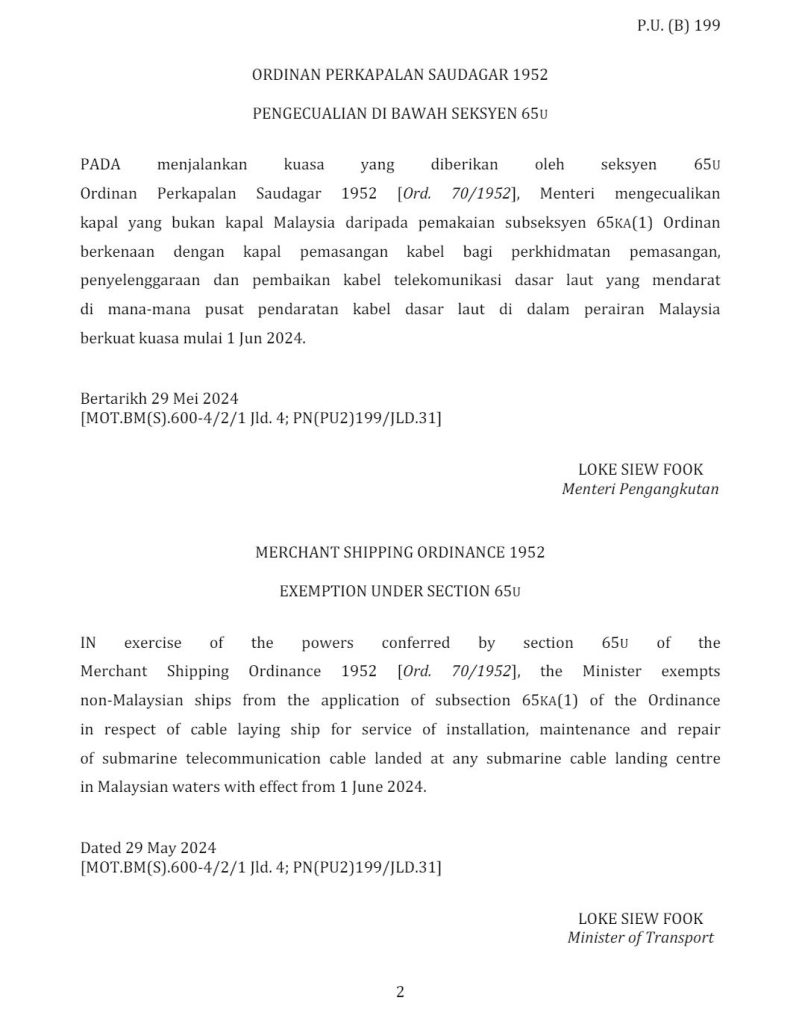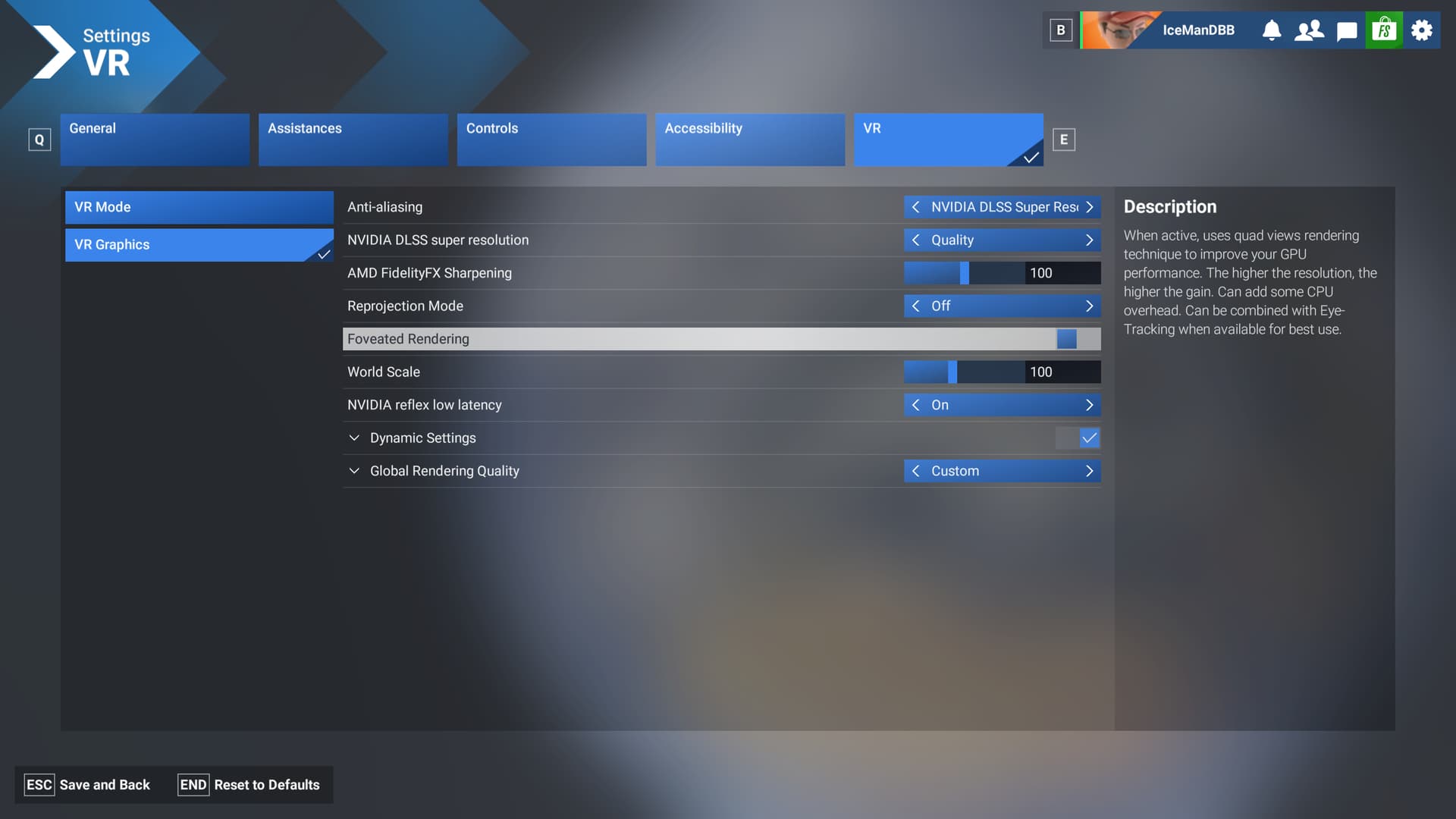Malaysia has finally reinstated the cabotage policy exemption for foreign ships to conduct laying, maintenance and repairs of submarine telecommunication cables in Malaysian waters effective 1st June 2024. This comes after Transport Minister Anthony Loke announced in March that the Cabinet has agreed to reinstate the policy which was revoked by the previous government.
The cabotage exemption is seen as a big win for tech investments as the decision made by Datuk Dr Wee Ka Siong in 2020 was seen as detrimental to Malaysia’s ability to attract telecommunications and digital investors. At the time, several tech giants have raised concerns about the revocation of the cabotage exemption and have reportedly told Dr Wee that they would review their cable investments in Malaysia.
As published on Malaysia’s Federal Legislation portal on 29th May 2024, Transport Minister Anthony Loke has exercised powers conferred by section 65U of the Merchant Shipping Ordinance 1952 to exempt non-Malaysian ships from the application of subsection 65KA(1) of the Ordinance in respect of cable laying ships for service of installation, maintenance and repair of submarine telecommunication cable landed at any submarine cable landing centre in Malaysian waters with effect from 1st June 2024.
The exemption would allow foreign ships to carry out urgent undersea cable repairs in Malaysia without the need of applying a Domestic Shipping Licence which takes several days to apply.
Cabotage Exemption for undersea cable repair vessels was first announced in 2019
During the previous Pakatan Harapan administration in 2019, Anthony Loke who was then a first-term Transport Minister, announced a cabotage exemption for foreign ships to carry out repairs for undersea cables in Malaysian waters in a bid to attract digital investments. The decision was made as the required ships were not available in Malaysia and undersea cable repairs took up to 27 days.
With the exemption, the government aimed to shorten the repair time for undersea cables and to improve Malaysia’s competitiveness in attracting foreign investors including Facebook, Google and Amazon.
Wee Ka Siong revoked cabotage exemption in 2020
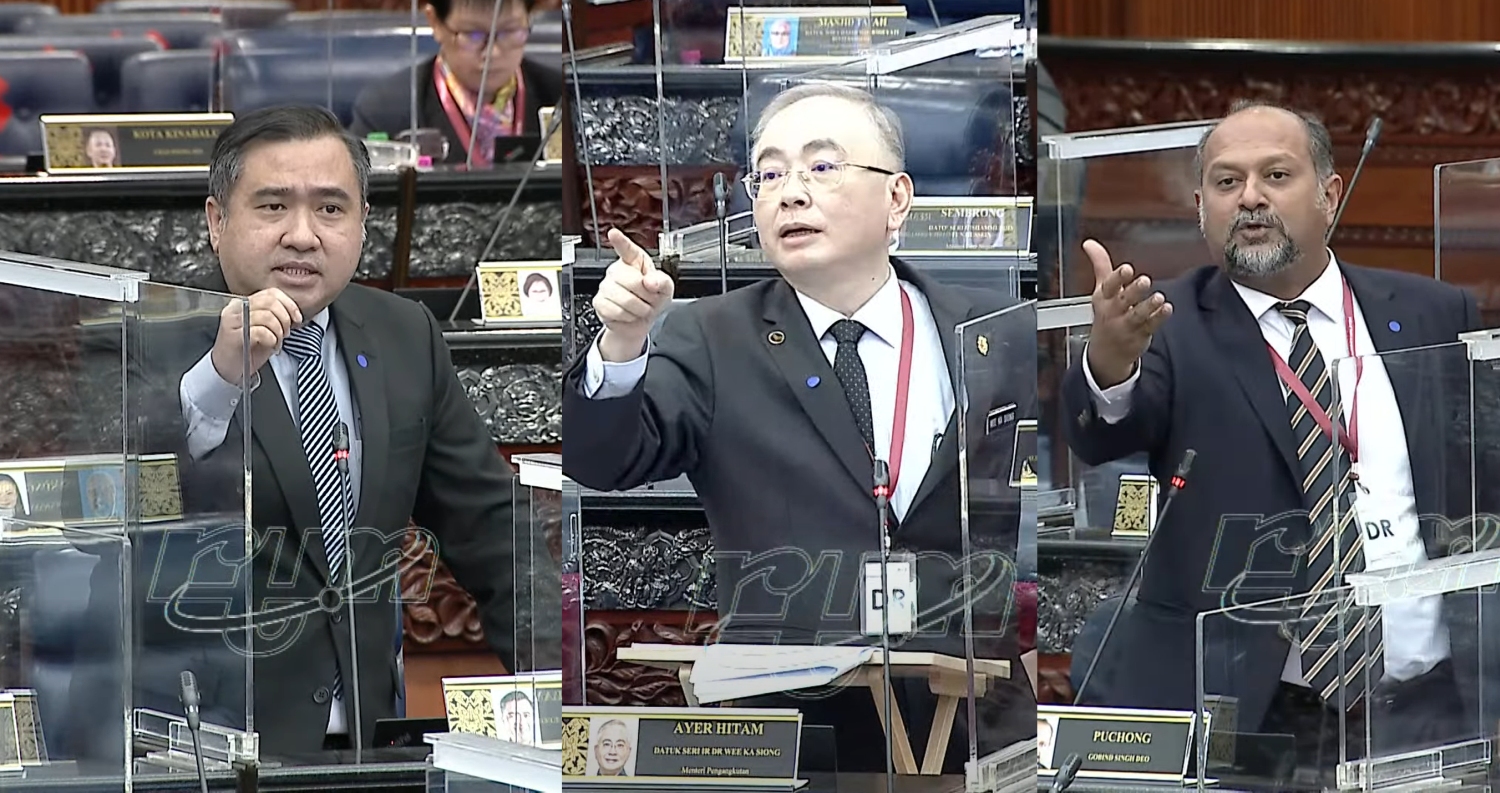
Following the Sheraton Move, the next Transport Minister, Dr. Wee Ka Siong revoked the cabotage exemption in 2020. Tech giants such as Facebook, Google, Microsoft and MyIX have written to the then Prime Minister Muhyiddin Yassin to urgently look into the revocation of the policy as it will severely affect the internet stability, quality and speed to Malaysian consumers and industries.
In Parliament, Dr Wee defended his decision claiming that the revocation will help increase Malaysia’s domestic shipping capacity and capabilities, as well as developing local technical expertimise among locals and to ensure the security and soverignty of Malaysian waters.
However, then former Transport and Communication Ministers – Anthony Loke and Gobind Singh, blasted Dr Wee for being ignorant about undersea cables after the MCA chief said rerouting can be done if there’s a cable fault.
Gobind reminded Dr Wee that the fact it took up to 27 days to repair faulty undersea cable highlights Malaysia’s inability to carry out undersea cable repairs in a timely manner. He said the decision to exempt cabotage was made after receiving requests from tech giants to solve the issue.
Gobind also said that if Dr Wee thinks “rerouting is a solution to the problem”, the Transport Minister “don’t understand the problem at all.”
Anthony Loke also told Parliament that the cabotage exemption introduced was only for vessels doing undersea cable repairs and the local ships available were only capable for laying cables. He elaborated that tech giants require DP2 vessels for undersea cable repairs which aren’t available locally. He also stressed that the revocation will have adverse effects and will cause investors to lose confidence in Malaysia.
Dr Wee claimed that the arguments from the tech giants were illogical and insisted that DP1 vessels were sufficient to carry out undersea cable works.
The cabotage issue was even debated live on Astro Awani with former Finance Minister Lim Guan Eng and Dr Wee Ka Siong on stage. Dr Wee insisted that his revocation of the policy did not cause Facebook and Google to bypass Malaysia for their subsea cable projects.
MyIX and industry have repeatedly called for cabotage exemption to be reinstated
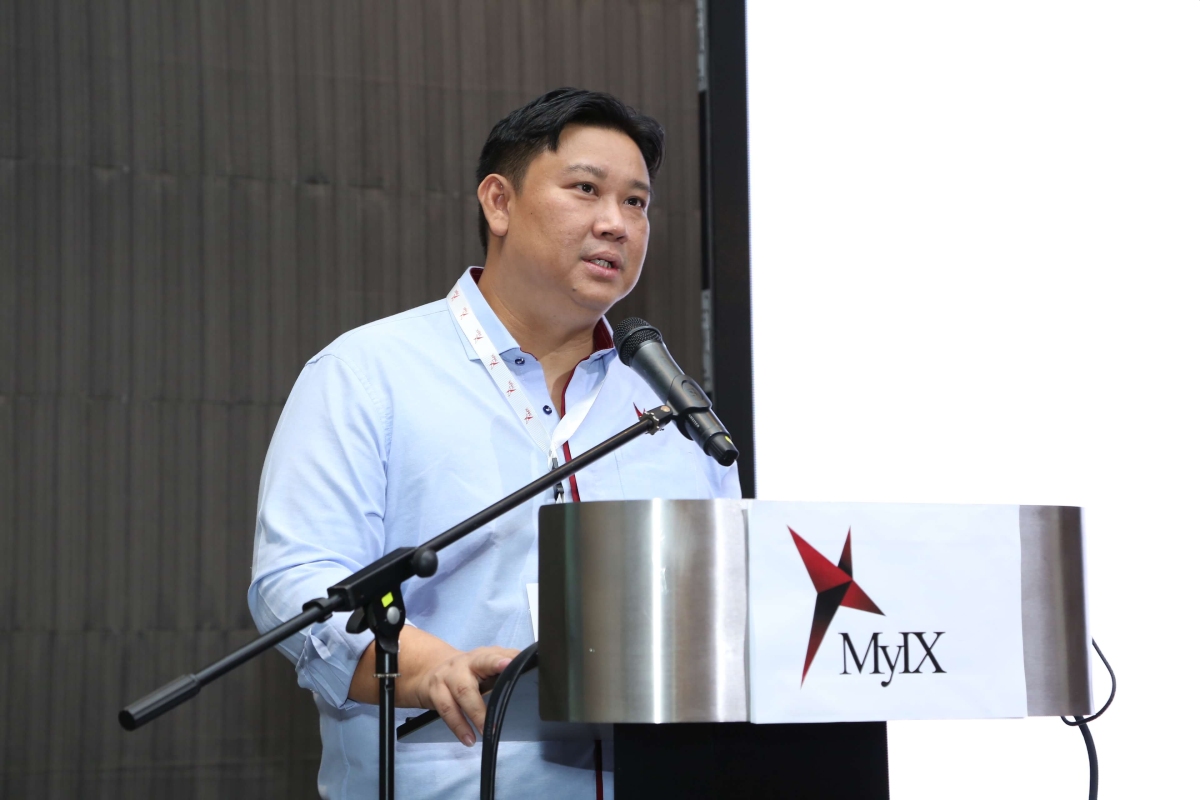
In the past few years, MyIX has repeatedly called upon the government to reinstate the cabotage exemption for undersea cable repair vessels as the revocation discourages foreign investment in Malaysia submarine cable landings. Its Chairman Chiew Kok Hin have highlighted the negative impact of undersea cable outages on our digital economy and the need to address the cabotage issue swiftly to attract more submarine cable investments.
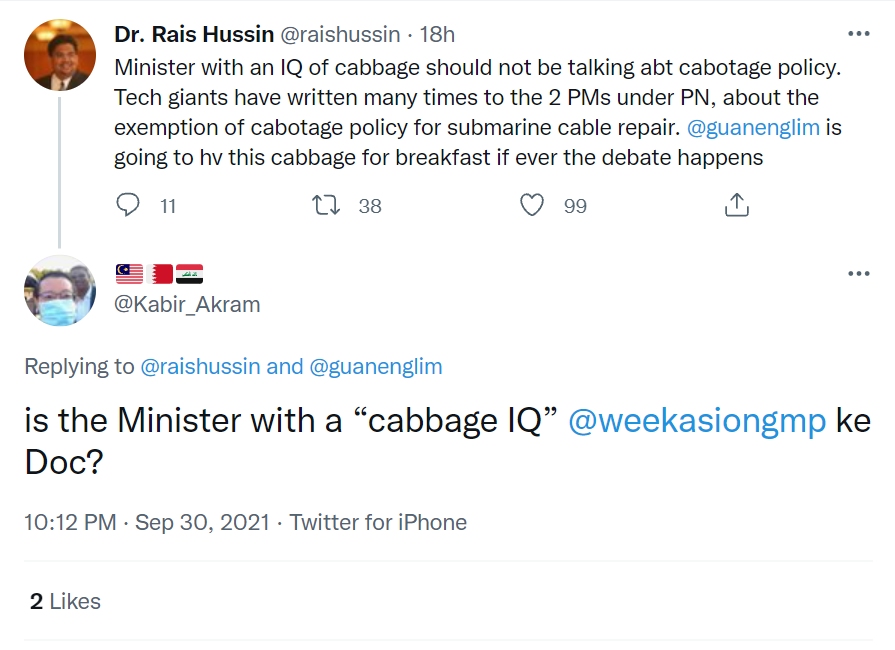
MDEC had also released a position paper which highlighted the negative impact of the cabotage policy on submarine cable operations and management. When Dr Wee challenged Lim Guan Eng to a debate on the cabotage policy, MDEC Chairman Rais Hussin tweeted that a Minister with an IQ of cabbage should not be talking about the cabotage policy.
Shortly after the Unity Government led by Anwar Ibrahim came to power, MyIX reminded the new administration to reverse Dr Wee’s policy in order to strengthen Malaysia’s position as a regional tech hub.
[ SOURCE, VIA, IMAGE SOURCE ]

